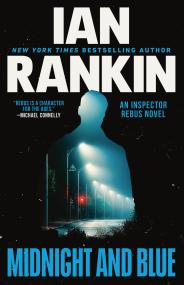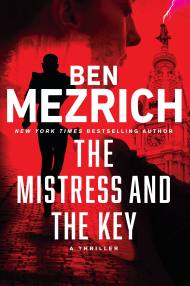Promotion
Sign up for our newsletters save 20% off your next purchase. Shop now.
Portrait of a Thief
A Novel
Formats and Prices
Format
Format:
HardcoverThis item is a preorder. Your payment method will be charged immediately, and the product is expected to ship on or around April 5, 2022. This date is subject to change due to shipping delays beyond our control.
Also available from:
An Edgar Award Nominee for Best First Novel
Longlisted for the Center for Fiction’s First Novel Prize
Named a New York Times Best Crime Novel of 2022
Named A Most Anticipated Book of 2022 by *Marie Claire* *Washington Post* *Vulture* *NBC News* *Buzzfeed* *Veranda* *PopSugar* *Paste* *The Millions* *Bustle* *Crimereads* Goodreads* *Bookbub* *Boston.com* and more!
“The thefts are engaging and surprising, and the narrative brims with international intrigue. Li, however, has delivered more than a straight thriller here, especially in the parts that depict the despair Will and his pals feel at being displaced, overlooked, underestimated, and discriminated against. This is as much a novel as a reckoning.”
–New York Times Book Review
Ocean’s Eleven meets The Farewell in Portrait of a Thief, a lush, lyrical heist novel inspired by the true story of Chinese art vanishing from Western museums; about diaspora, the colonization of art, and the complexity of the Chinese American identity
History is told by the conquerors. Across the Western world, museums display the spoils of war, of conquest, of colonialism: priceless pieces of art looted from other countries, kept even now.
Will Chen plans to steal them back.
A senior at Harvard, Will fits comfortably in his carefully curated roles: a perfect student, an art history major and sometimes artist, the eldest son who has always been his parents’ American Dream. But when a mysterious Chinese benefactor reaches out with an impossible–and illegal–job offer, Will finds himself something else as well: the leader of a heist to steal back five priceless Chinese sculptures, looted from Beijing centuries ago.
His crew is every heist archetype one can imagine–or at least, the closest he can get. A con artist: Irene Chen, a public policy major at Duke who can talk her way out of anything. A thief: Daniel Liang, a premed student with steady hands just as capable of lockpicking as suturing. A getaway driver: Lily Wu, an engineering major who races cars in her free time. A hacker: Alex Huang, an MIT dropout turned Silicon Valley software engineer. Each member of his crew has their own complicated relationship with China and the identity they’ve cultivated as Chinese Americans, but when Will asks, none of them can turn him down.
Because if they succeed? They earn fifty million dollars–and a chance to make history. But if they fail, it will mean not just the loss of everything they’ve dreamed for themselves but yet another thwarted attempt to take back what colonialism has stolen.
Equal parts beautiful, thoughtful, and thrilling, Portrait of a Thief is a cultural heist and an examination of Chinese American identity, as well as a necessary critique of the lingering effects of colonialism.
- On Sale
- Apr 5, 2022
- Page Count
- 384 pages
- Publisher
- Tiny Reparations
- ISBN-13
- 9780593184738
By clicking 'Sign Up,' I acknowledge that I have read and agree to Hachette Book Group’s Privacy Policy and Terms of Use




